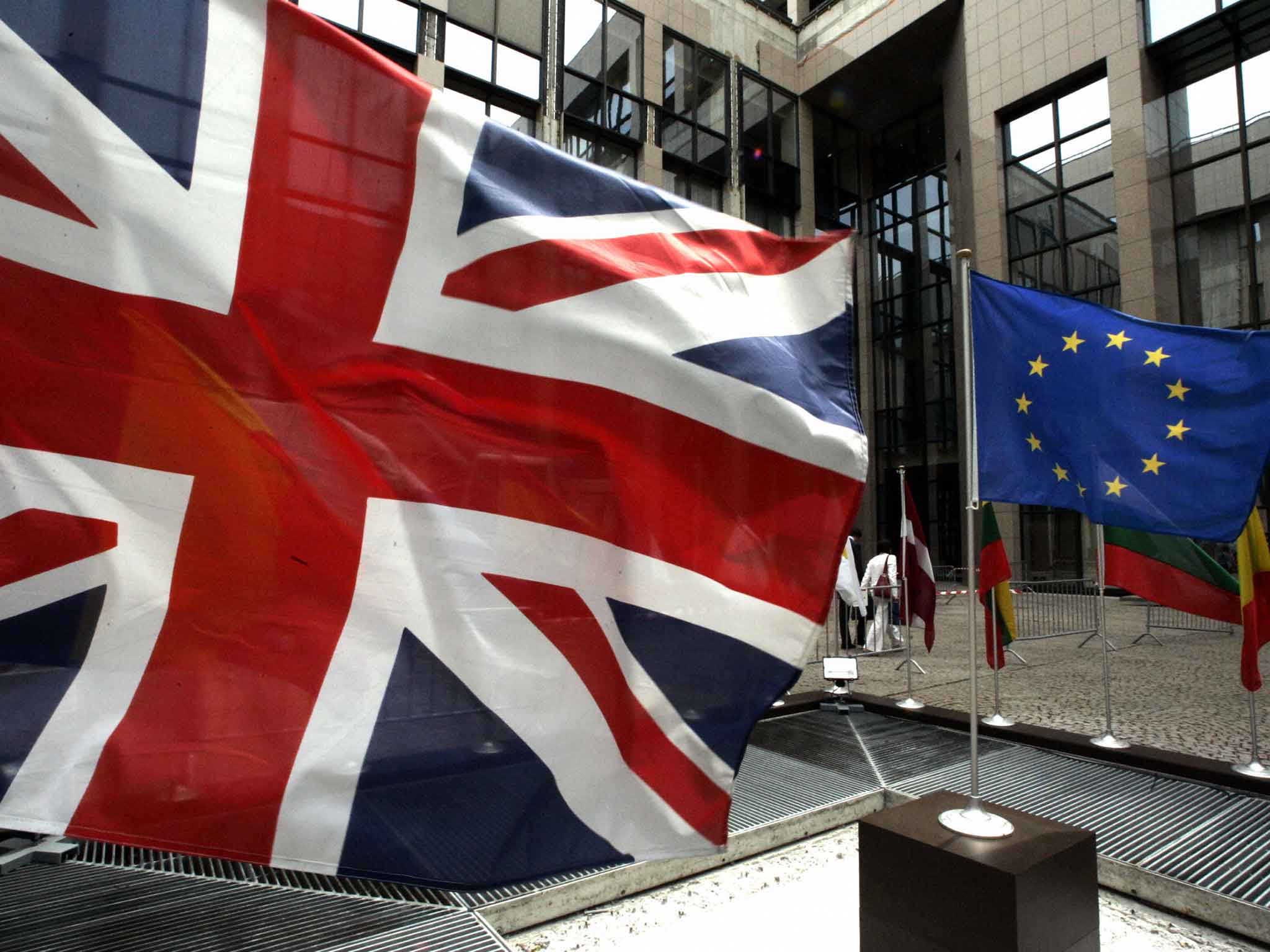We’re all politically uninformed – which is why we need a bank holiday to prepare for EU referendum
Politicians are the least trusted of all professions in this country – why would we expect that what they’re saying about the EU to be true

Your support helps us to tell the story
From reproductive rights to climate change to Big Tech, The Independent is on the ground when the story is developing. Whether it's investigating the financials of Elon Musk's pro-Trump PAC or producing our latest documentary, 'The A Word', which shines a light on the American women fighting for reproductive rights, we know how important it is to parse out the facts from the messaging.
At such a critical moment in US history, we need reporters on the ground. Your donation allows us to keep sending journalists to speak to both sides of the story.
The Independent is trusted by Americans across the entire political spectrum. And unlike many other quality news outlets, we choose not to lock Americans out of our reporting and analysis with paywalls. We believe quality journalism should be available to everyone, paid for by those who can afford it.
Your support makes all the difference.By our own reckoning only half of us are confident in our political knowledge and 77 per cent say that they know less about the issues in elections to the European Parliament than they do in general elections. Furthermore, surveys consistently show that UK voters hold various misconceptions on salient issues such as public spending or immigration.
Meanwhile, politicians are the least trusted of all professions in this country – so why would we expect that what they’re saying to be true? Scandals involving expenses, sex or drugs certainly do nothing to reverse this trend but ever-present is the spin, misinformation and downright lies that dominate modern politics.
Think you can trust a tabloid for your facts, then? Unfortunately not. During the referendum on electoral reform in 2011 David Farrell and colleagues found that just 12 per cent of statements made in the print media were backed up with coherent arguments. This is important as 90 per cent of people aged 15 or over consuming newsbrands in print or online, with the Daily Mail alone boasting an estimated 23m readers in 2014 alone.
Supporters of both the Pro-EU campaigns and the campaigns to leave have already made arguments built on misinterpreted statistics, misinformation or spin. I shouldn’t be disappointed, but somehow I still am.
This disappointment that has led me to create an official UK Government and Parliament e-petition. The petition calls for a new bank holiday to be held just prior to the referendum, and for this bank holiday to be used to hold an event called a Deliberation Day.
Scholars Bruce Ackerman and James Fishkin are the creators of Deliberation Day and an EU Referendum Daywould not need to be much different in structure.
Held two weeks before the referendum vote and over the course of two days, half the electorate would participate on either day allowing the other half to continue in their day jobs. The bank holiday would be a one-off event and mandatory, however the event itself would not. Attendees would be compensated, though. In addition, the event would be run by an independent public body that would provide trained facilitators to manage proceedings.
Similar to what Ackerman and Fishkin describe, attendees would gather at suitable meeting places like local schools or community centres. The event itself would be a combination of a televised Question Time style debate, small group discussions, larger hustings-style events between local representatives of the remain and leave camps, and reflective final sessions where no decisions are made over which way you might vote.
After leaving the event, citizens would have information packs to take home to refer to over the next two weeks until the vote.
The only change I would make is to add a further televised segment where independent experts analyse what has been discussed in order to provide context and accountability to the many facts and figures that will inevitably be banded about. Much in the way that the excellent Full Fact do now.
Previous similar events in Denmark, Canada, Ireland and Holland have shown that we should not underestimate the capabilities of people from every walk of life to be able to understand and assimilate complicated information.
In addition, Ackerman and Fishkin have already shown that this deliberative process helps to inform voters and, in turn, shape opinions on issues. Separately, Fishkin found that of 459 randomly selected people, 59.3 per cent thought the US spent too much on foreign aid and 26 per cent thought the level was “about right”. Following deliberations and an increase in knowledge of the topic, opinions in the group changed to 47.7 per cent “too much” and 40.7 per cent “about right”. Whether or not you personally believe in foreign aid spending is beside the point; the point is that informing people can change their opinion, and therefore, armed with accurate information people may vote differently.
Implementing a Deliberation Day has never been done in its entirety before. To do it properly would be a huge undertaking, but an undertaking that would give all voters - regardless of their education, income, ethnicity or background - the exact same chance to inform themselves about the most important vote the UK has seen for 40 years.
We owe it to our future and the future of generations too young to vote to make this decision an informed one.
You can find the petition here and follow the Twitter account here. Andy tweets @AndyRynham and a more in depth discussion of the process can be found here.
Join our commenting forum
Join thought-provoking conversations, follow other Independent readers and see their replies
Comments